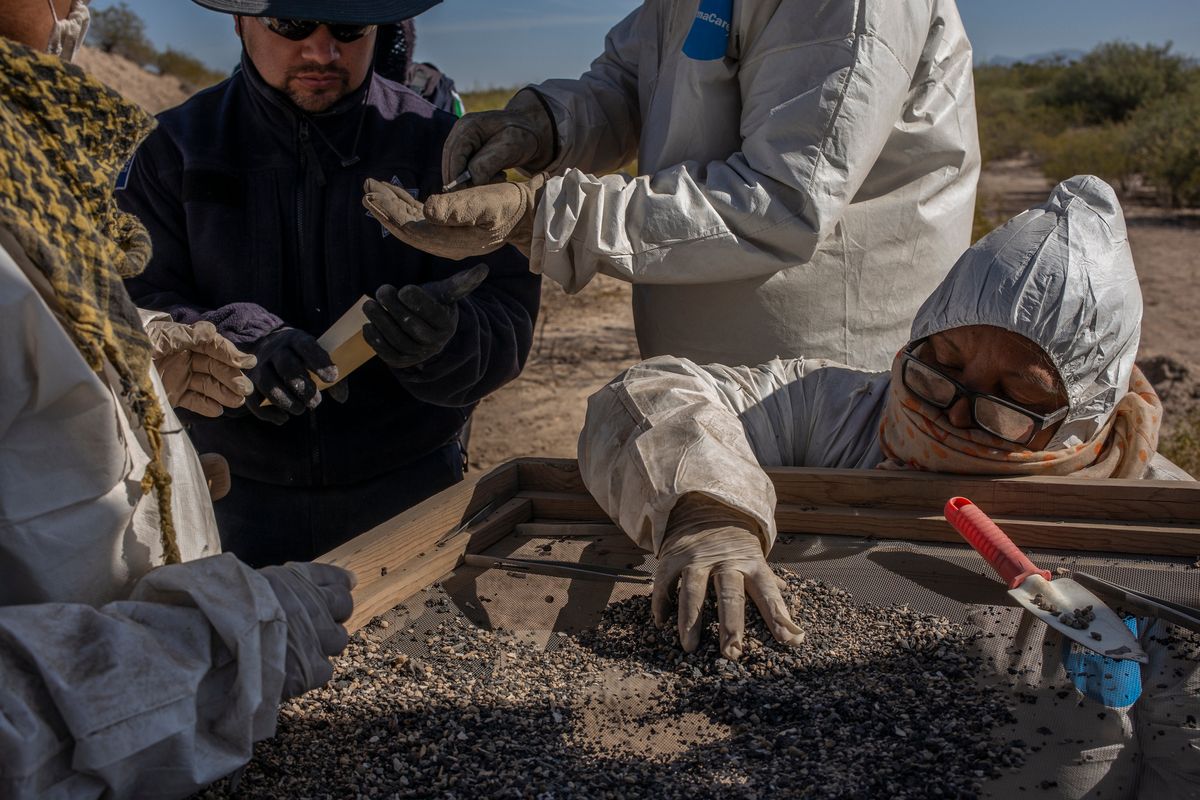Ex-leader of Mexico’s search for the disappeared convicted in human remains scandal

MEXICO CITY – A former official who led Mexico’s search for the disappeared has been found guilty of sharing confidential genetic information from thousands of recovered human remains with a private company.
Roberto Cabrera was sentenced late Thursday to three years in prison after a judge said he had helped a firm that “merchandised the suffering of families” searching for their loved ones.
It was a bizarre turn in Mexico’s most acute human rights crisis: The disappearance of more than 100,000 people, most of them in the past 15 years. The staggering number reflects the explosion of violence during the U.S.-backed war on drug gangs and the growing quest by Mexican crime groups to control more territory. Criminal organizations are blamed in the kidnapping and killing of many of the victims, but others were hauled away by brutal security forces. In some instances, corrupt local or state police snatched people on behalf of cartels.
The latest scandal adds to the litany of indignities suffered by families searching for their missing loved ones. Mothers of the disappeared have banded together in recent years to form a highly visible and politically potent movement. Yet they have faced local bureaucrats who mix up human remains, slow-walk investigations and toss unidentified bodies into common graves.
When he began sharing the genetic material, in 2017, Cabrera was coordinator of strategy in the national public security system. The following year, he became the public face of the government’s effort to find and identify the missing, as the first commissioner in charge of the search for the disappeared.
Karla Quintana, a Harvard-educated human-rights lawyer, succeeded him in that role in 2019. She filed a criminal complaint after learning that Cabrera had turned over genetic material from at least 45,000 people to the biotech company ADN México.
Much of the material came from remains the government was trying to identify, although some DNA may have belonged to relatives of the disappeared who had submitted to testing, lawyers said. The firm had already acquired DNA from missing person cases in several states, via contracts with local authorities and tests sought by individual family members.
There was no allegation that Cabrera was paid to hand over the material. Yet officials discovered that ADN had outlined a potential $3.5 million contract with him in which the company would compare relatives’ DNA to the genetic material in a government database to help them identify missing loved ones. The company had started contacting families of the missing, offering to perform the service free, prosecutors said. The contract was never signed.
Quintana said Friday that the firm appeared to see a business opportunity in the DNA collecting and matching and sent a sales representative to events held by the families.
“The main victims of these events, this scheme, are the families of disappeared people,” she said on the radio and internet program Aristegui News. The company, she said, “was playing with the profound pain” of the relatives.
Quintana said Mexico’s crisis of the disappeared was so vast that the government would sometimes need to contract private companies for help. But “there are very clear procedures on how to do this legally, protecting information like genetic material that is sensitive,” she said.
ADN spokeswoman Katya Mardueño said the company never profited from the genetic material it received. She said Cabrera asked the firm to see if it could create a massive database and match the DNA of unidentified bodies and families of the disappeared. The company told him the services would cost around $3.5 million, she said, but they never reached a deal.
She said the genetic material the company received did not have names attached. “We just did matches and gave information to the authorities,” she said.
A key piece of evidence in the trial was an official document signed by Cabrera agreeing to provide the genetic material to ADN. Defense attorneys did not challenge its authenticity. But they insisted that Cabrera was not in his office on May 31, 2017, the day in which he was alleged to have met with a company representative and to have allowed her to download genetic information on a USB stick. Cabrera spent most of that day in northwest Mexico responding to the killing of a journalist, the lawyers said, and presented airline tickets and other evidence of his trip.
His attorneys said they would appeal.
Judge Felipe de Jesús Delgadillo Padierna said Cabrera had misused his authority by giving sensitive genetic material gathered by officials to a for-profit business. “There is no reason for this information to be in private hands,” he said. “The state should be the only one responding to the families of the disappeared, in conditions of strict respect.”
It was not clear whether Cabrera would spend time behind bars. He was offered the possibility of a fine and community service. The judge also ordered him to make a public apology.